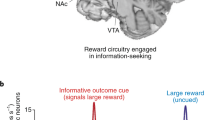Abstract
Sometimes we believe that others receive harmful information. However, Marschak’s value of information framework always assigns non-negative value under expected utility: it starts from the decision maker’s beliefs – and one can never anticipate information’s harmfulness for oneself. The impact of decision makers’ capabilities to process information and of their expectations remains hidden behind the individual and subjective perspective Marschak’s framework assumes. By introducing a second decision maker as a point of reference, this paper introduces a way for evaluating others’ information from a cross-individual, imperfect expectations perspective for agents maximising expected utility. We define the cross-value of information that can become negative – then the information is “harmful” from a cross-individual perspective – and we define (mutual) cost of limited information processing capabilities and imperfect expectations as an opportunity cost from this same point of reference. The simple relationship between these two expected utility-based concepts and Marschak’s framework is shown, and we discuss evaluating short-term reactions of stock market prices to new information as an important domain of valuing others’ information.
Similar content being viewed by others
References
Aumann R.J. (1976), Agreeing to disagree. Annals of Statistics 4, 1236–1239
Conlisk J. (1996), Why bounded rationality?. Journal of Economic Literature 34, 669–700
Geanakoplos J.D., Polemarchakis H.M. (1982), We can’t disagree forever. Journal of Economic Theory 28, 192–200
Grant S., Kajii A., Polak B. (2000), Preference for information and dynamic consistency. Theory and Decision 48, 263–286
Hirshleifer J., Riley J.G. (1979), The analytics of uncertainty and information. Journal of Economic Literature 17, 1375–1421
Lindstädt H. (2001), More nonconcavities in information processing functions. Theory and Decision 51, 351–365
Lipman B.L. (1991), How to decide how to decide how to...: modeling limited rationality. Econometrica 59, 1105–1125
Lipman B.L. (1995), Information processing and bounded rationality. Canadian Journal of Economics 28, 42–67
March J.G. (1978), Bounded rationality, ambiguity, and the engineering of choice. The Bell Journal of Economics 9, 587–608
Marschak J. (1954), Toward an economic theory of organization and information. In: Thrall R.M., Coombs C.H., Davis R.L. (eds), Decision Processes. Wiley, New York, pp. 187–220
Marschak J. (1959), Efficient and viable organization forms. In: Haire M. (eds), Modern Organization Theory. Wiley, New York, pp. 307–320
McGuire C.B. (1986), Comparison of information structures. In: McGuire C.B., Radner R. (eds), Decision and Organizations. 2nd ed. University of Minnesota Press, Minneapolis, pp. 101–130
Mongin P., Walliser B. (1988), Infinite regressions in the optimizing theory of decisions. In: Munier B. (eds), Risk, Decisions, and Rationality. D Reidel, Dordrecht, pp. 435–457
Wakker P. (1988), Nonexpected utility as aversion to information. Journal of Behavioral Decision Making 1, 169–175
Author information
Authors and Affiliations
Corresponding author
Rights and permissions
About this article
Cite this article
Lindstädt, H. Valuing Others’ Information under Imperfect Expectations. Theor Decis 62, 335–353 (2007). https://doi.org/10.1007/s11238-007-9039-1
Received:
Accepted:
Published:
Issue Date:
DOI: https://doi.org/10.1007/s11238-007-9039-1
Keywords
- value of information
- decision under risk
- imperfect expectations
- cross-value of information
- harmful information
- stock market prices




